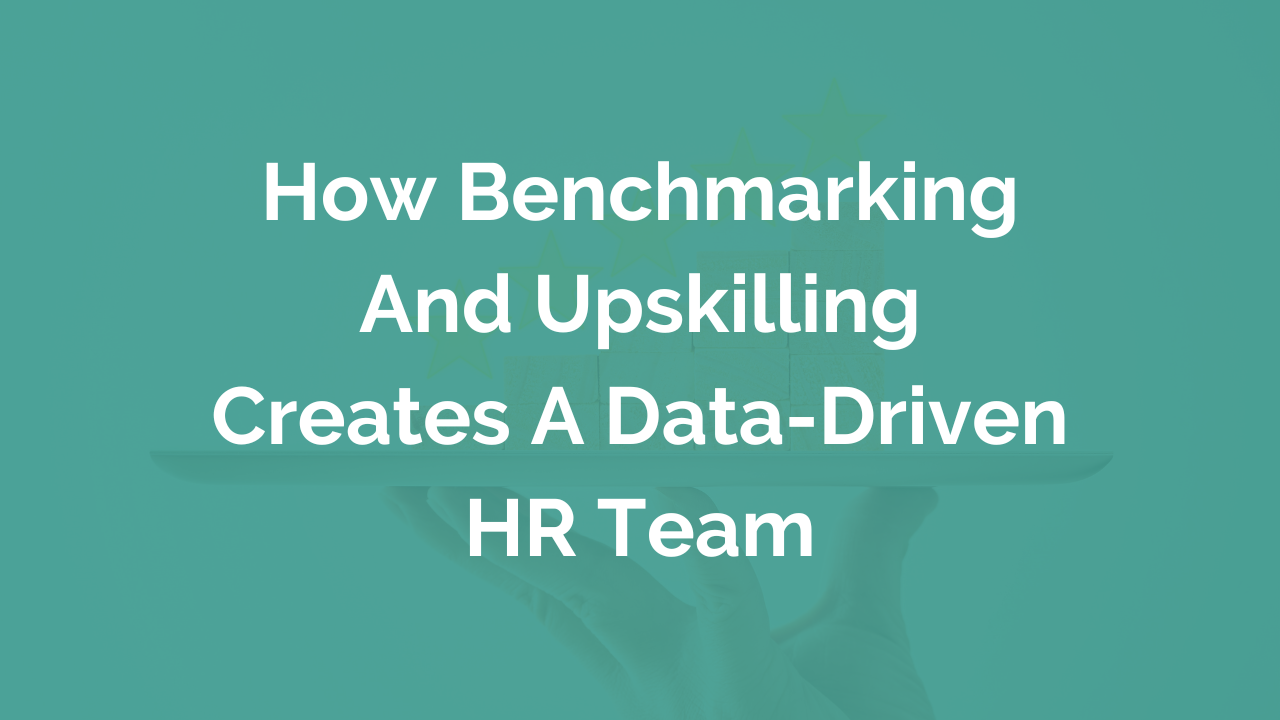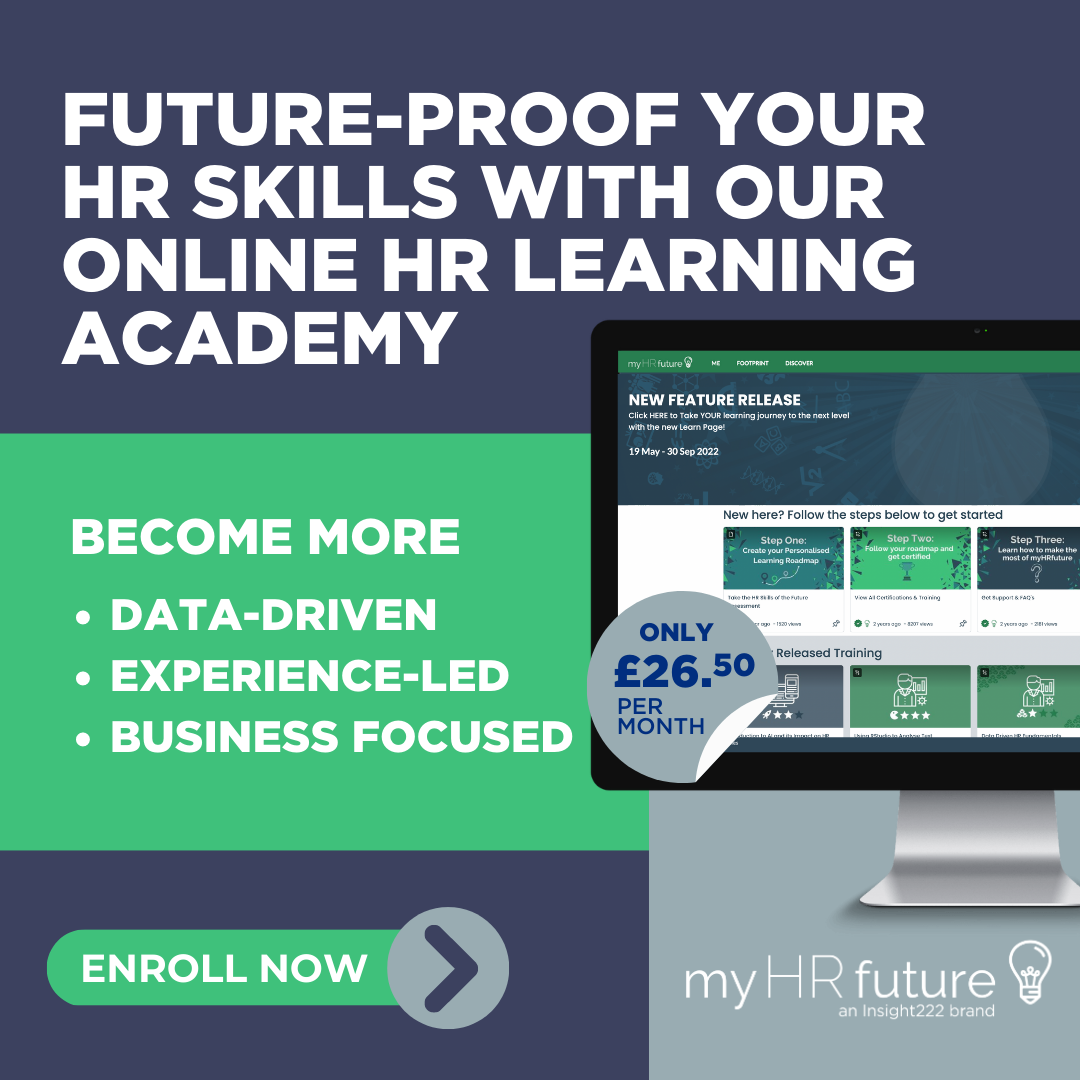How Benchmarking And Upskilling Creates A Data-Driven HR Team
In today's business landscape, relying on intuition or personal biases for strategic decision-making in HR is no longer sustainable. While pre-pandemic times saw a gradual shift towards a data-driven HR function, the COVID-19 pandemic has accelerated the need for HR departments to become more systematic and aligned on data-driven capabilities.
As the pandemic forced organisations to shift to remote or hybrid work, HR teams were tasked with new challenges such as ensuring health and safety, crisis management, and measuring employee performance, engagement, and productivity without traditional office interactions. In this context, data-driven decision-making has become more crucial than ever before for HR professionals to ensure they make the right decisions that impact their organisation's bottom line.
The Value of Data-Driven HR Functions
Research from our Insight222 People Analytics Trends report has consistently shown that data-driven HR functions provide more value to their businesses than those that are not. By leveraging data and analytics, HR professionals can gain strategic insights that drive better business outcomes and align with industry best practices. Meanwhile, our research also demonstrated an increased focus on people analytics in important business decisions and a rise in the number of people analytics professionals in organisations.
However, despite this trend, HR professionals have traditionally not come from analytical backgrounds, which can create a barrier for companies seeking to embrace a data-driven HR function fully. While modern HR curriculums are being adapted to include more analytics training, it may take time for the market to see an influx of data-fluent HR professionals. This is why upskilling a data-driven HR function from the inside has become a business imperative in so many organisations.
From Data-Driven HR to Better Business Outcomes
Our previous post on Why Upskilling HR is so important details the need to upskill HR to become more data-driven. And although the why is a key starting point, many questions remain about the “how?”!
As Madhura Chakrabarti notes during her discussion with David Green on the Digital HR Leaders Podcast, before you decide on the type of learning experience and methods of delivery, it's best to understand the level of knowledge that your team have on data and how they prefer to learn.
Conduct employee surveys to understand what they find difficult and why, then use that feedback to create a customised upskilling training plan and best practices manual. This way, your team can be equipped with the necessary analytical skills and know-how to leverage data as a people analytics tool.
To learn more about how Syngenta successfully upskilled its HR function into data literacy, be sure to check out the podcast (transcript included).
Ingredients for Your HR Upskilling Strategy
In her recent course, 'Upskilling and Reskilling Your Workforce', Lori Niles-Hofmann shares her vision on why a skill-based approach is the way forward in the modern workplace and why upskilling needs a strong strategic approach.
Translated in the context of HR Upskilling, this means understanding the bigger skill landscape of the organisation and identifying both functional skills, which are specific to particular roles or functions, and transversal skills, which can be applied across a range of roles and functions. As an example, specific skills like job post writing or candidates screening are traditionally linked to the role of Talent Acquisition, while stakeholder management and storytelling with data are more transversal skills applying to different roles: HRBP's, COE leaders or Reward specialists, for instance.
Developing a comprehensive skills inventory, taxonomy, and ontology can help you identify these skills and ensure the organisation has a clear picture of the transversal skills its HR function needs to succeed. In a skills-based organisation, HR can focus on deploying their teams against tasks based on their skill set rather than static job positions. This can lead to a more agile and efficient HR function that is better equipped to adapt to changing needs and challenges in the workplace.
So you need to focus not only on skills inventory at the individual level but also at a more horizontal level across the HR function. It would help if you also considered how some of these transversal skills also fit in the bigger Upskilling plans of the organisation for more efficiency and strategic alignment.
Bring the Outside in for Greater Performance.
Moving beyond the internal skill landscape, HR needs to go and benchmark itself against the external world to verify some of its hypotheses. Benchmarking allows HR departments to identify gaps in their processes compared to industry standards and best practices and then plan specific strategies that can bridge those gaps.
Benchmarking is a crucial component in creating a data-driven HR function. By using benchmarking to measure performance against industry best practices and standards, organisations can become equipped with the insights on the skills that they need to make informed decisions which will help drive business outcomes. It brings light to having more data-driven conversations with the business and provides actionable insights on how best to develop talent and create career paths.
And as your HR team upskills in data literacy and analytics, benchmarking can help measure the impact of HR performance.
As Luigi Maria Fierro, Head of HR Strategy and People Analytics at ING, highlights in his conversation with David Green:
"We are seeing more data-driven conversations as a direct result of benchmarking the skills in the market. We also see standardisation around decision-making in HR. But more importantly, we are bringing visibility to both the HRBPs and also our employees. HRBPs and business leaders have started to understand their workforce much better due to these insights, and they now have a better understanding of which skills we still need to improve on or bring in additionally."
By benchmarking performance against best practices, your HR team can improve their decision-making capabilities and create an improved HR function that best meets the needs of your organisation's future.
To help you along the way with your benchmarking efforts, PwC and Gartner offer credible and reliable sources that allow you to compare your business' HR performance against others in the industry.
Transforming HR Functions with Data Literacy and People Analytics
Through benchmarking and upskilling in data literacy, HR leaders can ensure that their teams can have the best practices and skills needed to make informed decisions and drive business outcomes.
First, understand your HR functions' current skills and data-driven capabilities, benchmark your performance against industry standards, and then create a plan to upskill your teams with the right learning experience to develop the right skills and capabilities in data literacy and people analytics.
If you're looking for more guidance on how best to do this, join our myHRfuture Academy and learn the best practices, tools and tips to create HR teams that are at the forefront of data-driven decision-making.
Sign up now and start your journey towards becoming a data-driven HR function today.
Build a Data-driven Culture in HR With Learning and Change Management with myHRfuture PLAY
Our hybrid, cohort-based learning program supports HR professionals build advanced capabilities in data-driven skills. By combining digital learning with our interactive bootcamps we are able to provide you with an engaging experience that brings your learning to life. Our bootcamps provide you with practical case studies to explore and experiment with data in a safe environment that empowers you to turn theory into practice and apply your learning immediately on the job.






